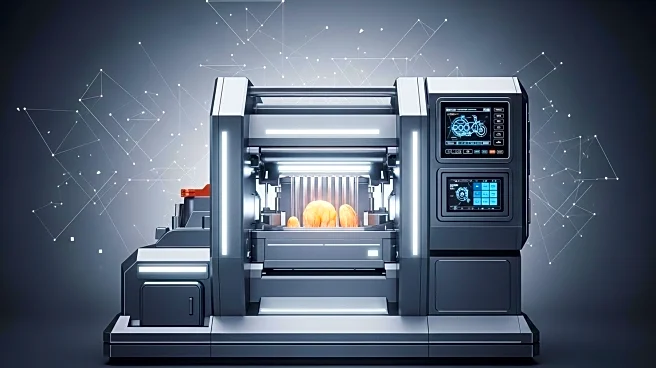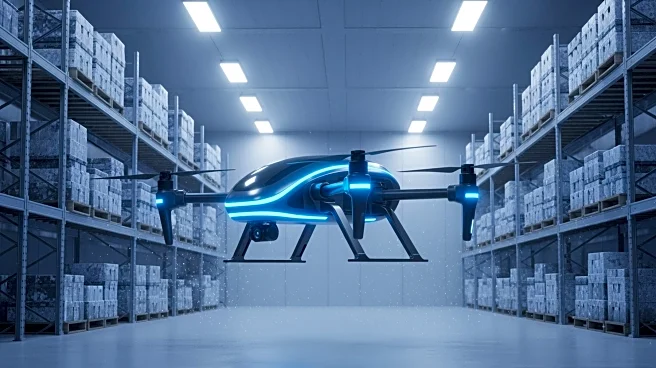What's Happening?
The food and beverage industry is experiencing significant disruptions due to labor shortages, rising costs, climate change, and cyber threats. These challenges are affecting production capacity and supply chains, with many businesses struggling to adapt. Regulatory pressures, such as the European Union's Deforestation Regulation, are adding complexity and costs for manufacturers. Climate change is impacting crop yields and increasing storage expenses, while geopolitical unrest and cybercrime are destabilizing global supply chains. Industry experts emphasize the need for long-term resilience strategies to navigate these disruptions.
Why It's Important?
The disruptions in the food and beverage industry have wide-reaching implications for global food security and economic stability. Labor shortages and rising costs threaten the profitability of businesses, while climate change poses risks to essential crops and luxury commodities. The industry's ability to adapt to these challenges will determine its future sustainability and growth. For consumers, these disruptions may lead to higher prices and reduced availability of certain products. The situation highlights the need for innovative solutions and collaboration across the industry to ensure resilience.
What's Next?
Businesses in the food and beverage sector are encouraged to invest in automation, supply chain collaboration, and agile operating models to mitigate disruptions. Long-term contracts and strategic partnerships may help unlock investment opportunities and improve resilience. As geopolitical tensions and cyber threats continue to evolve, companies must remain vigilant and proactive in their contingency planning. The industry's response to these challenges will shape its trajectory and influence global food systems.









